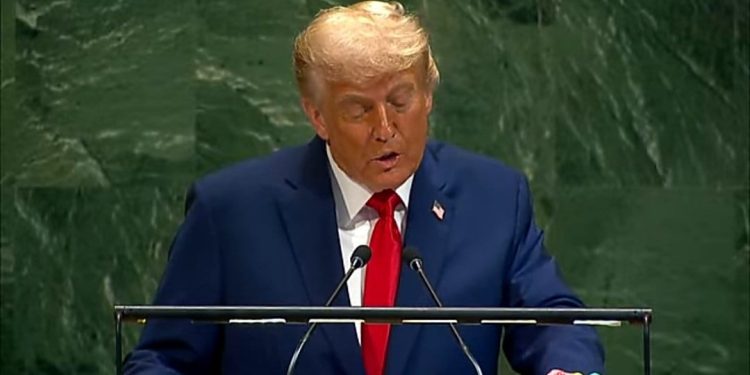US President Trump Invites Global Fans to 2026 World Cup and 2028 Olympics Amid Tightening Visa Policies
In a spirited address at the 80th United Nations General Assembly, U.S. President Donald Trump expressed his hope that “countless people from all over the globe” will attend the upcoming 2026 FIFA World Cup and 2028 Summer Olympics, both hosted by the United States. Despite his enthusiasm, the president’s invitation comes as new visa policies could complicate travel for many fans.
Trump emphasized the significance of the events, noting that next year marks the 250th anniversary of American independence, coinciding with the World Cup. He stated, “It’s going to be very exciting. I hope you all come,” reflecting a desire to welcome international visitors to these landmark sporting events.
However, recent data indicates a decline in overseas travel to the U.S., with a 2.9% drop in visitors year-on-year as of August, totaling approximately 3.5 million. This marks the sixth consecutive month of decreased travel, defying expectations that inbound tourism would rebound to pre-pandemic levels.
Compounding these issues, potential visitors from non-visa waiver countries now face a $250 “visa integrity fee,” along with extended wait times averaging 169 days for B-1/B-2 tourism or business visa interviews. These challenges particularly impact fans from countries with strong soccer traditions, such as Mexico, Argentina, and Brazil.
Despite these hurdles, ticket demand for the World Cup remains high, with over 1.5 million applications received from fans in 210 countries within just 24 hours of the presale draw. The tournament will feature 104 matches across 16 host cities in the U.S., Canada, and Mexico.
As the excitement builds for these major events, industry experts warn that tightening visa policies and fears of border issues could deter some international visitors from making the trip. The White House is also considering further restrictions on visa durations for students, cultural exchange visitors, and media members, adding another layer of complexity for those hoping to attend.
With the 2028 Olympics set to take place in Los Angeles, the pressure is on to ensure that these global sporting events are accessible to fans worldwide, despite the current challenges posed by U.S. visa policies.








